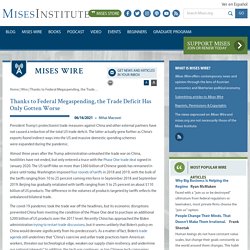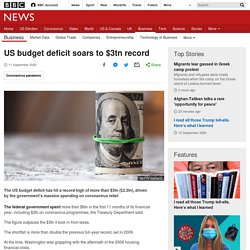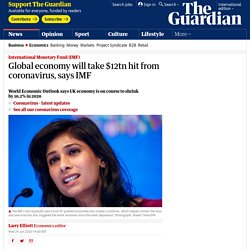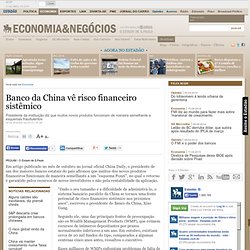

Thanks to Federal Megaspending, the Trade Deficit Has Only Gotten Worse. President Trump’s protectionist trade measures against China and other external partners have not caused a reduction of the total US trade deficit.

The latter actually grew further as China’s exports found indirect ways into the US and massive domestic spending schemes were expanded during the pandemic. Almost three years after the Trump administration unleashed the trade war on China, hostilities have not ended, but only entered a truce with the Phase One trade deal signed in January 2020. The US tariff hike on more than $360 billion of Chinese goods has remained in place until today. Washington imposed four rounds of tariffs in 2018 and 2019, with the bulk of the tariffs ranging from 10 to 25 percent coming into force in September 2018 and September 2019. Beijing has gradually retaliated with tariffs ranging from 5 to 25 percent on about $110 billion of US products.
The US Trade Deficit Continued Growing Graph 1: US Trade Deficit with China and the World, 2002–20 Murray N. Source: FRED. US budget deficit soars to $3tn record. Image copyright Getty Images The US budget deficit has hit a record high of more than $3tn (£2.3tn), driven by the government's massive spending on coronavirus relief.

The federal government spent more than $6tn in the first 11 months of its financial year, including $2tn on coronavirus programmes, the Treasury Department said. The figure outpaces the $3tn it took in from taxes. The shortfall is more than double the previous full-year record, set in 2009. At the time, Washington was grappling with the aftermath of the 2008 housing financial crisis. Even before the pandemic, the US was on track to run a deficit of more than $1tn this year - large by historic standards. But the spending approved to try to cushion the financial impact of the virus has exploded those projections. The Congressional Budget Office this month predicted that the US was likely to run a full-year deficit of $3.3tn, more than triple the shortfall recorded last year. Global economy will take $12tn hit from coronavirus, says IMF.
The International Monetary Fund has said the global economy will take a $12tn (£9.6tn) hit from the Covid-19 pandemic after slashing its already gloomy growth projections for the UK and other developed countries in 2020.

The IMF said it would take two years for world output to return to levels at the end of 2019 and warned that governments should be cautious about removing financial support to their fragile economies. In an update to forecasts published in April, the Washington-based IMF said it now expected the global economy to contract by 4.9% this year, compared with a 3% drop expected in the spring. “The Covid-19 pandemic pushed economies into a Great Lockdown, which helped contain the virus and save lives but also triggered the worst recession since the Great Depression,” said the IMF’s economic counsellor, Gita Gopinath.
She added that there would be a fall in living standards for 95% of countries this year. The UK economy was on course to shrink by 10.2% in 2020, the Fund said. Exposing the power of corporate lobbying in the EU. Self Sufficiency. Banco da China vê risco financeiro sistêmico - economia - versaoimpressa. PEQUIM - O Estado de S.Paulo Em artigo publicado no mês de outubro no jornal oficial China Daily, o presidente de um dos maiores bancos estatais do país afirmou que muitos dos novos produtos financeiros funcionam de maneira semelhante a um "esquema Ponzi", no qual o retorno é garantido pelos recursos de novos investidores e não pela rentabilidade da aplicação.

"Dado o seu tamanho e a dificuldade de administrá-lo, o sistema bancário paralelo da China se tornou uma fonte potencial de risco financeiro sistêmico nos próximos anos", escreveu o presidente do Banco da China, Xiao Gang. Segundo ele, uma das principais fontes de preocupação são os Wealth Management Products (WMP), que reúnem recursos de inúmeros depositantes por prazos normalmente inferiores a um ano. Em outubro, existiam cerca de 20 mil fundos do tipo, comparados a algumas centenas cinco anos antes, ressaltou o executivo. Esses milhares de WMPs enfrentam problemas de falta de transparência e de qualidade.